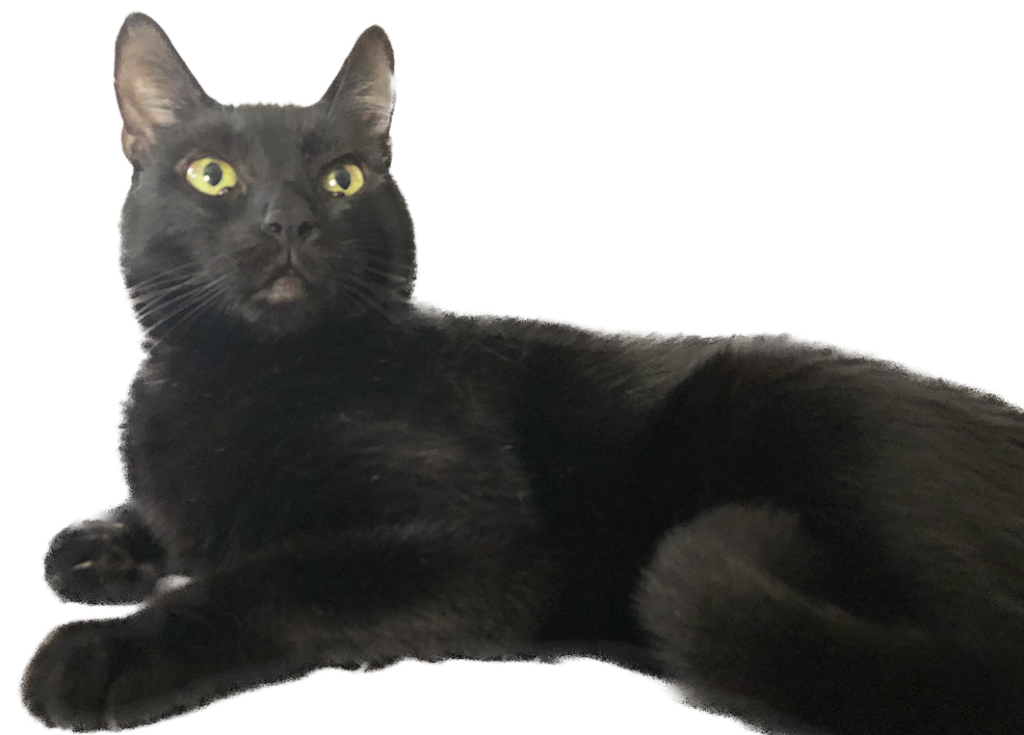Ginger Shares What You Need to Know to Prevent Cat Poisoning
Dear human, March is Pet Poison Prevention Awareness Month. When a cat is poisoned, he may have only minor symptoms, such as skin irritation. However, poisons can also cause permanent liver damage, seizures, coma, and death. Quick action on your part to seek expert advice can save our lives.
Take steps now to protect your pet. Some poisons even have antidotes that can be given to counteract the poison.
The key is to prepare ahead of time and have an action plan in place. Here’s what I suggest:
First, keep the Animal Poison Control Center’s phone number handy.
The USA Animal Poison Control Center’s phone number is 888-426-4435. Find the best number to call, and program it into your phone or post it on your refrigerator now.
Next, know the Symptoms of Poisoning
Watch your pets for [1]:
- Hiding
- Restlessness/excitement
- Tremors
- Seizures
- Vomiting
- Diarrhea
- Difficulty breathing
- Bleeding
- Loss of consciousness or coma
What are the Most Common Ways Pets are Poisoned?[2]
- One of the most common ways pets get poisoned is by eating human medications. About one-fifth of emergency phone calls to the Animal Poison Control Center involve pets who’ve found and accidentally swallowed pills.
- Pets are also commonly poisoned by chocolate. The Animal Poison Control Center receives almost 60 calls a day due to pets eating chocolate.

- Animals can be poisoned by other types of food as well, including sugar substitutes most commonly found in candy and gum. Cats are unusually sensitive to onions and garlic (even when dehydrated, as in dry onion soup). Grapes and raisins can cause kidney damage and life-threatening kidney failure.
- Cats are often poisoned by household cleaning products, paint, antifreeze, and gardening products such as fertilizer.
- Essential oils can be harmful. Do not let your cat lick even diluted oil products.[2]
Third, Take These Preventive Steps in Your Home.
Many cases of animal poisoning cases are accidental. A pet may find food or a package of candy on a countertop, table, or floor. Unfortunately, humans unknowingly give their pets food that can poison them.
Don’t be stupid, human! Take this advice from experts [1]: Feed pets only pet food. Do not give candy or gum to cats. (Cats are meat eaters and cannot taste sweets, and doing so will only cause tooth decay.) Some tips are:
- Never give pets food that may be spoiled.
- Children should be advised to never feed pets human food.
- Keep all pills and chocolate off of counters. Be careful on occasions like Christmas, Valentine’s Day, and Easter, when gifts containing chocolate may be left out.
- Never give any medications to us pets unless they are prescribed by your veterinarian. Some common over-the-counter and prescription medicines meant for humans, such as painkillers, can cause adverse effects, severe toxicity, or even death in pets.
- Keep household cleaning and decorating products, – such as paints, varnishes, preservatives, glass cleaners, and gardening products out of reach/behind locked cabinets.
- Clean up gasoline, cleaning solvents, and antifreeze spills immediately. Even small amounts of antifreeze can kill us.
- Many house plants are poisonous, For example, Lilies – may smell good to you, but they can kill your cat! Know the names of all of the plants in your house and check them out online.
- Flea and tick sprays, shampoos, collars, and dusts containing insecticides should be used cautiously. Spot-on flea treatments for dogs – many contain Permethrin, which is poisonous to cats Read the label carefully and follow all safety precautions, human!
- Keep rodent or insect bait and pellets out of reach. Snail and rat bait in pellet form will look like food to us and should not be used in areas where your pet is allowed to roam freely. For example, Metaldehyde, found in some slug and snail baits, can be lethal.
- Provide us with plenty of safe, nontoxic chewable toys and snacks.
What if Your Pet is Poisoned?
So, the worst has happened. Your cat is sick and you think she’s been poisoned. The ASPA[3] recommends these four steps:
Check Your Pet
Remove us from the source of poison and check how we’re doing. Are we acting normal? What symptoms are we showing?
If we are bleeding, having difficulty breathing, having seizures, or losing consciousness, take us directly to a vet clinic for immediate care.

Gather the Evidence
Gather any leftover packaging or pills to help the experts identify what and how much we were exposed to or may have ingested. If we throw up, look at the vomit so you can describe it to a professional.
Try to determine when and how much we were exposed to or ate. Save any container (or take a photo of the label) so you can share it with the poison center or veterinarian.
Call the 24-hour Animal Poison Control Hotline or Your Local Veterinarian asap.
Call and describe what happened. A trained professional will give you clear instructions for what steps to take. If needed, they even will speak with your local veterinarian and assist them to make sure we get the best treatment possible.
Even if we are acting normal, don’t wait to contact APCC. Many poisons can have a delayed effect and can be harder to treat once we becomes sick.
Don’t Panic
Poisonings can be serious. Some can kill. However, many times, poisonings can be managed at home. The expert will let you know what steps to take once you describe what happened. Do not make rash decisions or take advice from information you’ve read on the Internet. Stay calm and call the Animal Poison Control Center or your veterinary professional first.
Keep the Animal Poison Control Center’s 24-hour hotline (888-426-4435) at your fingertips.
At our house, we keep the hotline number and the number to our 24-hour vet on the fridge and in my humans’ phones.
The key is to prepare ahead of time, have the Animal Poison Control Center’s phone number handy, and act quickly. If you suspect poisoning, do not wait to call. You know we don’t have thumbs. We rely on you humans to keep us safe
Leave Ginger a comment or any suggestions below.
Footnotes/Great Resources for Further Reading:
[1] Poisoning & Pets | West Virginia Poison Center (wvpoisoncenter.org)
[3] What to Do if Your Pet Is Poisoned | ASPCA
[4] https://www.rspca.org.uk/adviceandwelfare/pets/cats/health/poisoning
Article originally published March 1, 2023. Updated March 1, 2025.





Ginger you are so smart and have such great information here for us to protect our pets from
poisons and what a great list of preventive steps to follow the cuddling boys and you Ginger are amazing
always keeping us all in awareness ad up to date topics we thank you All hugs blessings much love the cats and me x o
I love your blog Mewla!
Thanks for the interesting article. I did not know cats would eat human pills or candy. I will make sure and keep these out of my Marty’s reach!
Excellent article. Thank you!
This is very important information. Thank you for sharing.